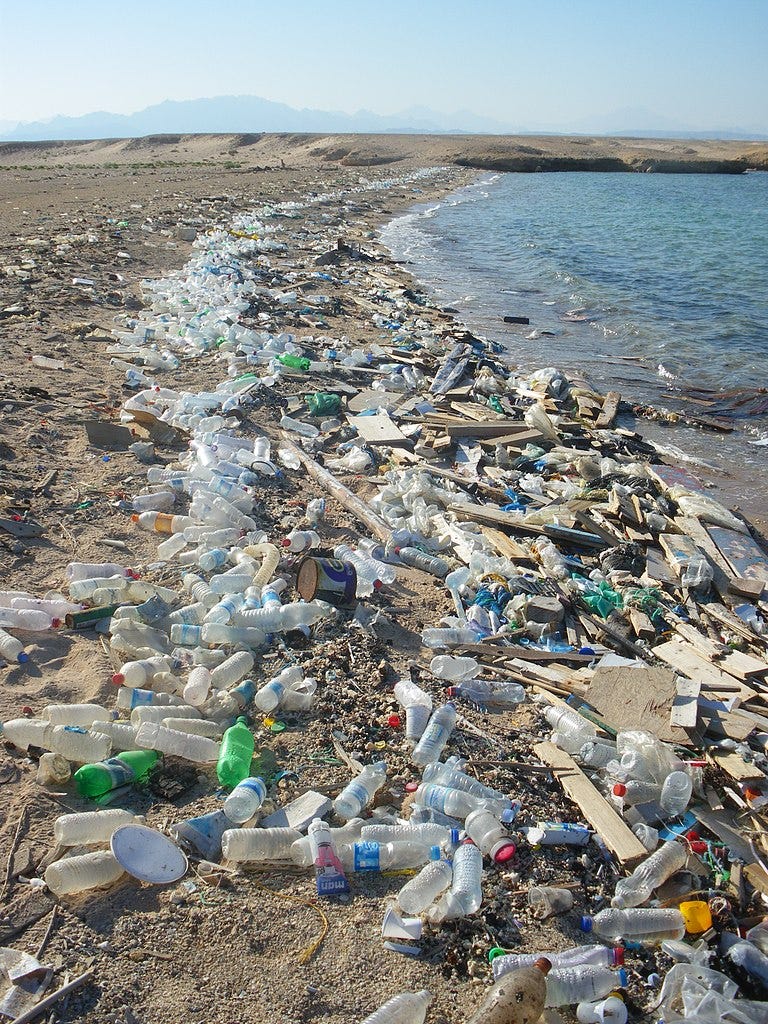‘It’s Everyone’s Problem’: UN To Tackle Issue of Plastic Pollution
Global community now “mobilizing quickly,” to address the risks
Plastic, is everywhere.
From bottles, to bags, and toothbrushes, to toys, plastic is nearly omnipresent in our society and our world.
Between the 1950s and 2019, global plastic production has ballooned from an estimated 2.2 million tons per year to 460 million tons per year. And if industry has its way, it’ll be more like 1.5 billion by 2050, and estimates are that there’ll be a tripling of plastic use by 2060, according to the Organization for Economic Cooperation and Development (OECD).
And while Americans, for decades now, diligently collect their plastic waste in their recycling bins, so much plastic isn’t recycled and escapes into the ecosystem.
Most plastics do not biodegrade and instead break down into microplastics, which are estimated to persist in the environment for centuries, or even longer.
Some researchers suggest that by 2050 there could be more plastic than fish in the oceans by weight. Living organisms — particularly marine animals — can be harmed either by mechanical effects such as entanglement in plastic objects, problems related to ingestion of plastic waste, or through exposure to chemicals within plastics that interfere with their physiology. Degraded plastic waste can directly affect humans through direct consumption (i.e. in tap water), indirect consumption (by eating plants and animals), and disruption of various hormonal mechanisms.
Plastic pollution is also an issue of environmental equity. Low-income communities and communities of color in the United States and around the world bear the brunt of plastic pollution from production, waste disposal, use, and incineration. Plastic pollution also disproportionally impacts people in poorer in countries, communities in the United States, where more plastic waste leaks out into the environment due to insufficient waste collection and management systems, which exacerbates the impacts of climate and other major crises around the world.
After decades of neglect, the world finally is looking to do something about this issue which essentially hides right out in plain sight.
The international community committed to develop an international legally binding instrument on plastic pollution by the end of 2024.
This week, official delegations, high-level representatives, partners, and stakeholders from around the world will travel to Ottawa, Canada to meet for the fourth session of the Intergovernmental Negotiating Committee on Plastic Pollution (INC-4) to continue to work towards their goal of ending plastic pollution and reducing plastic waste.
The United States has a key role to play, according to Margaret Spring, Monterey Bay Aquarium’s chief conservation and science officer, who spoke Friday at a press briefing in Washington DC.
“It produces plastic. We actually generate a lot of waste – probably the most plastic waste,” said Spring, who will lead delegations from both the International Science Council and the Monterey Bay Aquarium at the negotiations. “We actually have probably a more advanced waste management system, but in the end there is still leakage into the environment, which is of concern, and our recycling and disposal infrastructure is not going to be able to bear this.
“And of course, we do export waste too and that has changed a little bit because of some changes in China, but essentially there’s just too much for us to manage at this point,” she added.
The official US government delegation will be led by Under Secretary of State for Economic Growth, Energy, and the Environment Jose Fernandez.
In all, INC-4 will run from Tuesday through the following Monday and bring together representatives from approximately 180 countries to make progress towards a strong, inclusive global agreement on plastic pollution.
“And so we’re looking forward to seeing how far we can get in this meeting,” said Monterey Bay Aquarium’s Spring. “And the last meeting will be in Seoul, Korea in the fall, and then ideally the treaty would be signed at an event, the plenipotentiaries meeting next year in 2025.
“So that’s probably the fastest international treaty agreement timeline I’ve even seen, and so we’re all mobilizing quickly,” she added.
Please support our work…
Please subscribe…





